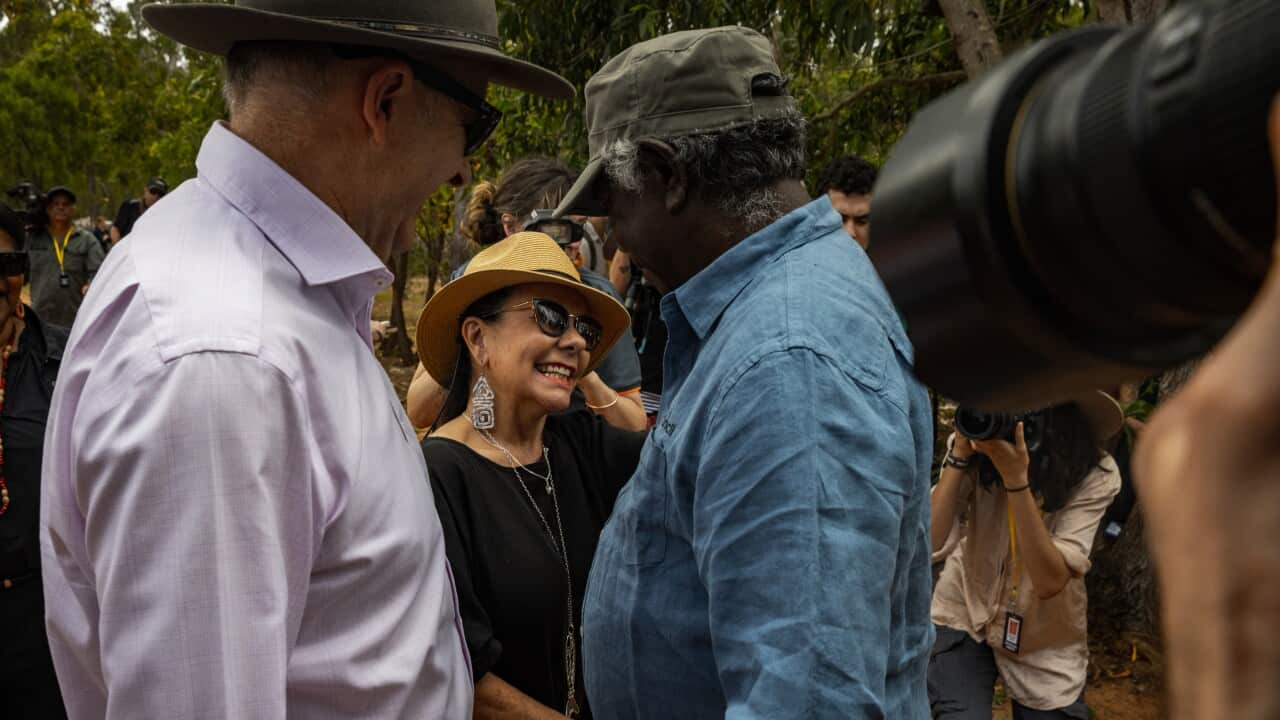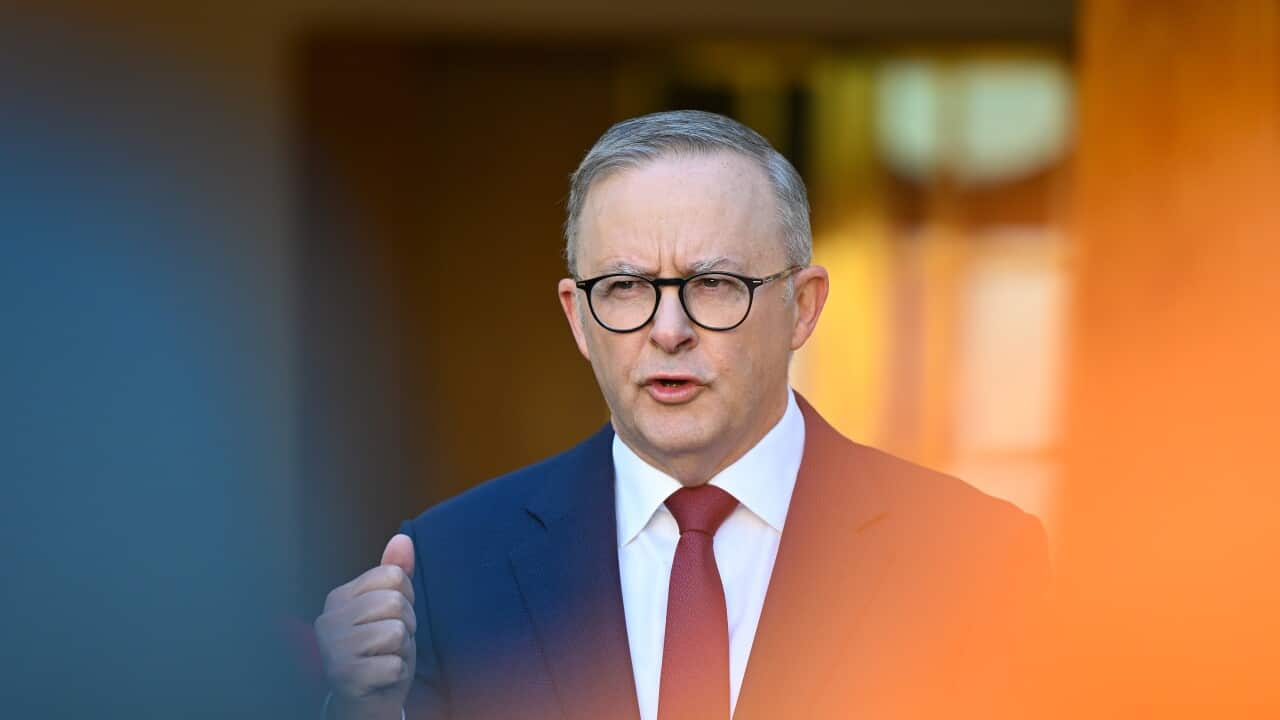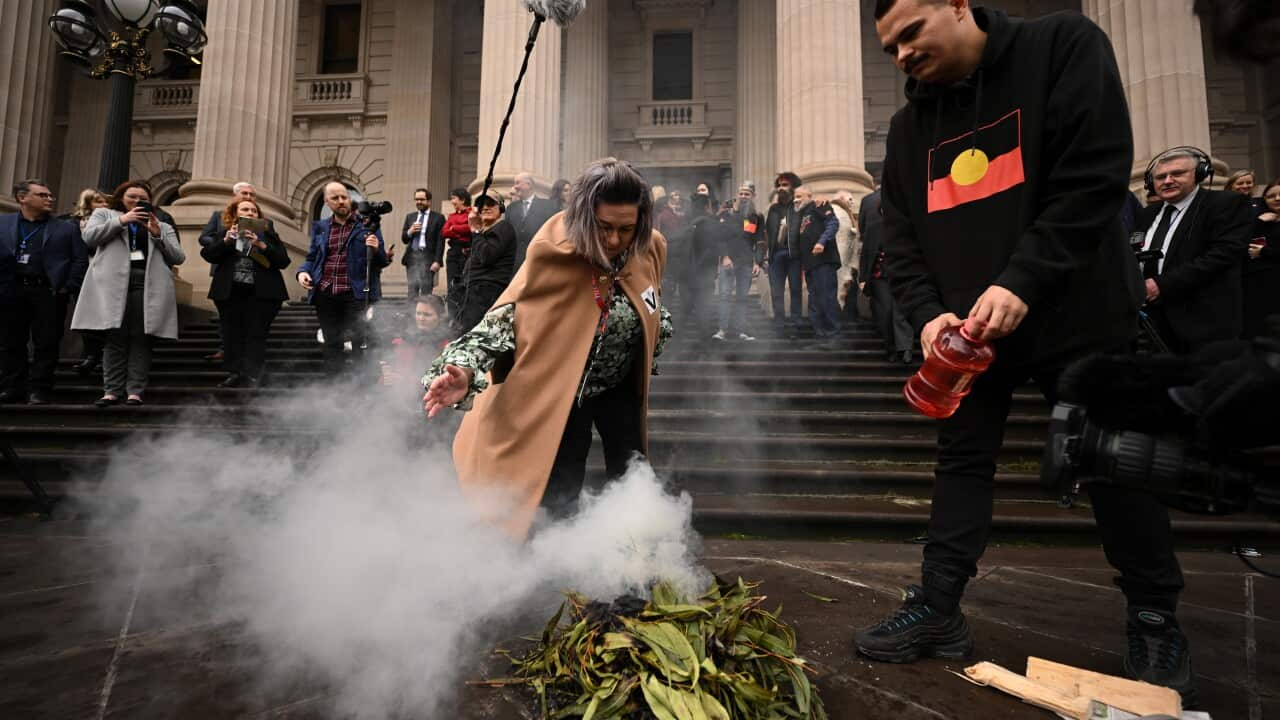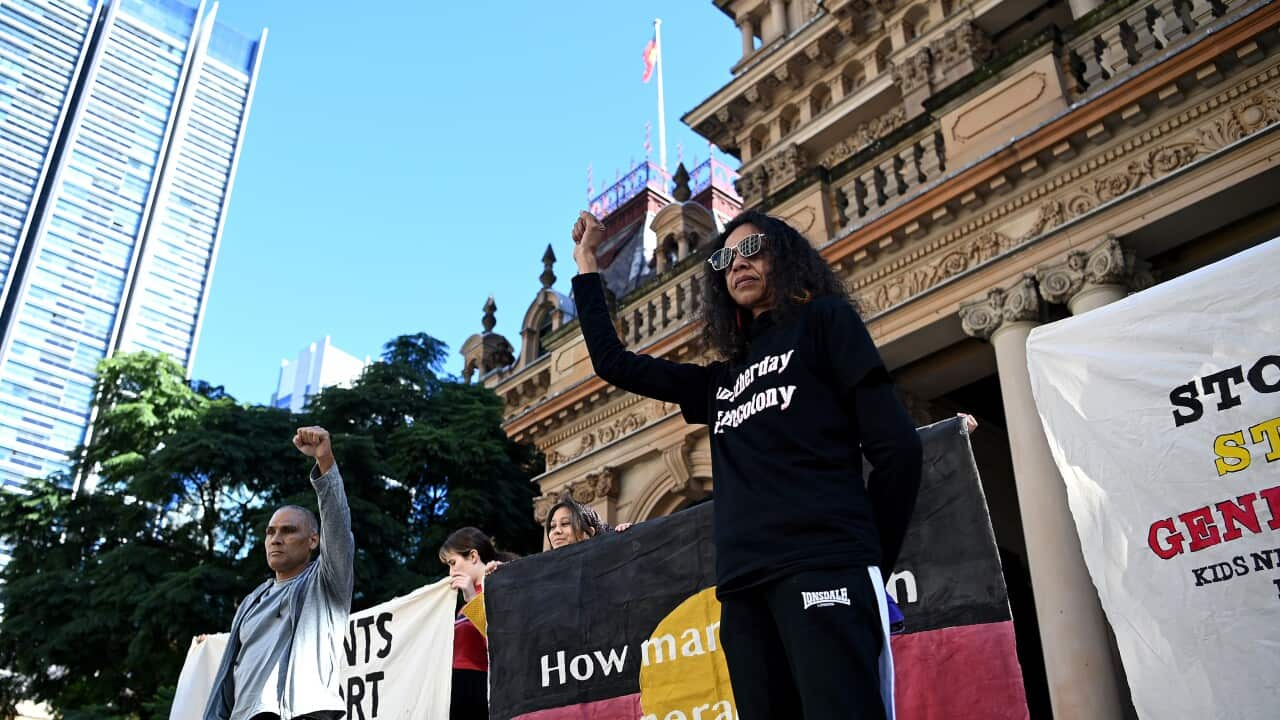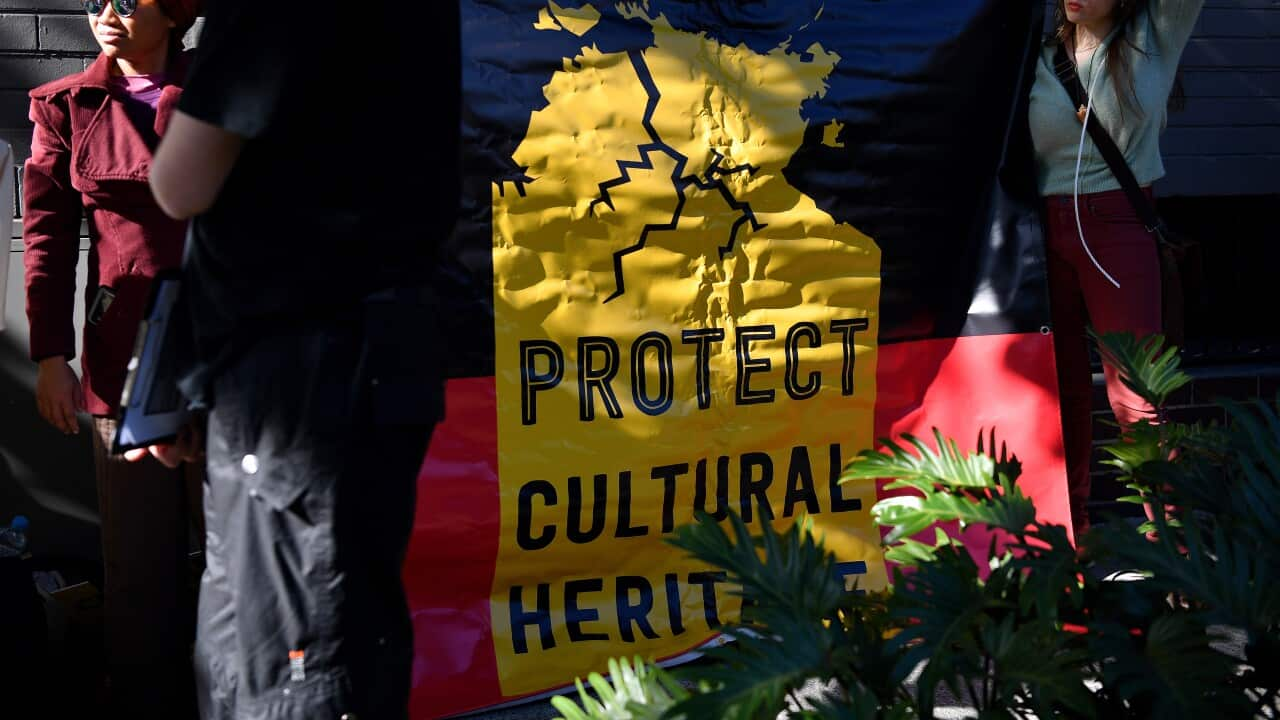Three representatives from regional communities have backed their support for the Voice to Parliament at Garma Festival.
The Regional Voice panel featured members of Empowered Communities (EC), a group of ten regions from across the nation, which formed a decade ago at the very same festival.
READ MORE
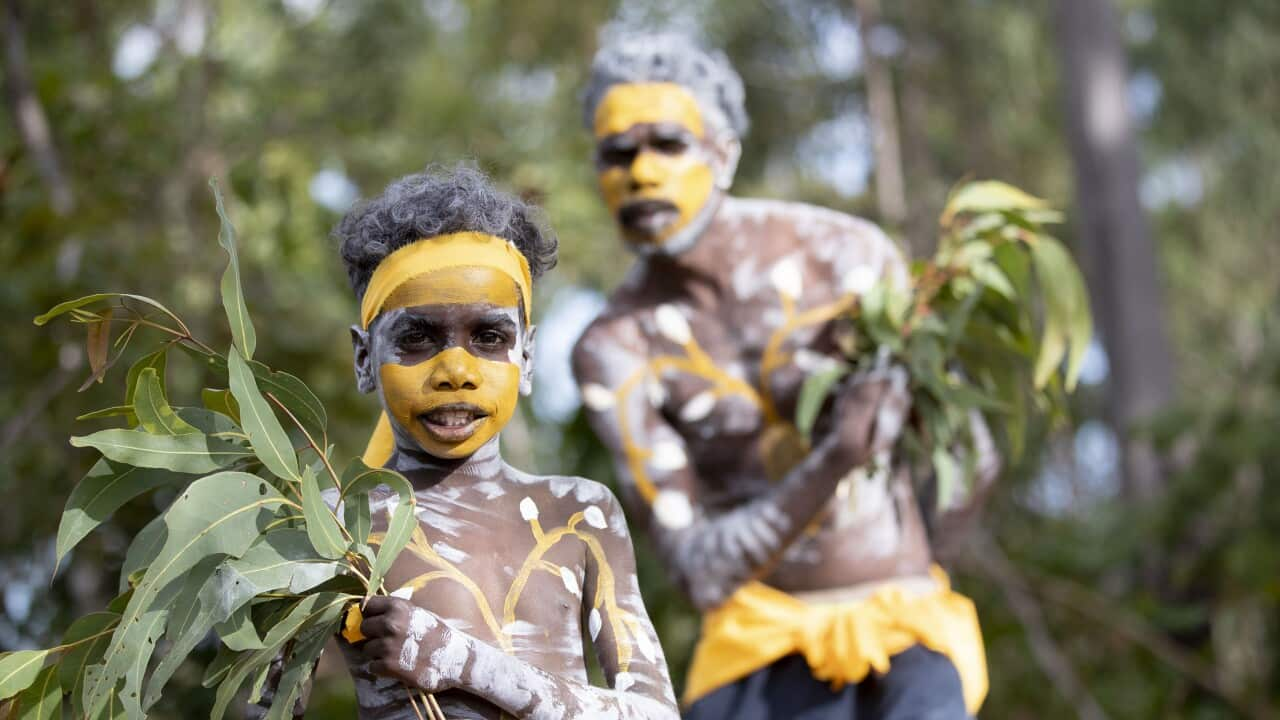
What is Garma and how did it begin?
Hosted by NITV’s Head of News Natalie Ahmat, the panel featured Kuku Yalanji and Torres Strait woman Fiona Jose who represents the Cape York region, Kimberley region representative, Bardi man and Kimberley Land Council (KLC) CEO Tyronne Garstone and Inner-Sydney representative, and Bundjalung and Wonnarua man Shane Phillips.
North East Arnhem Land representative and Djapu woman, Yananymul Mununggurr couldn’t attend.
Mr Garstone began , describing him as a “leader for all Australians” who “should be remembered”.
The three panellists, who all wore Yes campaign t-shirts, spoke of their hopes for a successful referendum.
"The way we want to be recognised is by having a Voice,” Ms Jose said.

The panels during the Garma Festival are held in the Garrtjambal Auditorium, Credit: Tamati Smith/Getty Images
“This is personal, right? This is our future . . . It’s about my children, they will know their place in this country. They will be confident.
“They will have a country that recognises and embraces their Indigenity, their Australianness, all those levels of identity.”
While Ms Jose is positive a Voice will change things, she says it's imperative regional voices are heard.
"We were all trying to fight the same beast, who controls our lives and our communities, and that's government,” said Ms Jose.
"Government doesn't rule their lives like it rules ours . . . We came together across those regions because we wanted strength.
“We were best placed to support and have solutions for our mob.”
EC has worked specifically on developing joint decision-making across the regions and believes their process is something those in Canberra could learn from.
"Relationships and partnerships with government are hard, very hard . . . We’ve been teaching them [consultation], we are so much better at this than government," Ms Jose said.
“They have a lot of investment in themselves to do, the question is always on us as Blackfullas on how we are going to respond. We have been getting our house in order for decades. Government haven’t been keeping up.”
EC, through its relationship with the government, has been able to consult on some funding spending.
However, there remain issues of funding dedications, and the consultation process when it comes to those decisions.
"We see every year the PM come down and talk to us about closing the gap . . . . none of them are closing. We've seen the Productivity Commission report $34 billion on Indigenous affairs, we on the ground ask where is that money? Where is it being spent?” Mr Garstone asked.
“We are getting blamed for it. If we are going to get blamed for spending this money, we want to have a say in it.”
For Mr Garstone, it’s about flipping the notion of the Closing the Gap National Agreement on its head.
“[We need] a bottom-up approach where you are getting informed by people who are most impacted,” he said.
Pushing the need for a Yes vote further, Mr Garstone emphasised the concerns of funding changes in the face of changing governments.
“These are inter-generational issues, they don’t fall in election cycles,” he said
"Our issues won't win you an election, so why are we getting kicked around as a political football?”
Mr Garstone also highlighted the need for transparency within both government and a grassroots level when it comes to joint decision-making.
“We evaluate the services providers, we evaluate the impact they’re having, and if we continue their funding,” he said.
Mr Garstone spoke on the issues of multiple services supplying similar programs in the Kimberley.
"[It’s a] wastage of money, a plethora of service provides not working together, so we were able to remove them,” he said.
"We have some of our own organisations who aren't having an impact or doing the right thing, so we have to evaluate them.
“We should be making a difference .. we need to be evaluating ourselves.”
When it comes to the Voice to Parliament, Mr Garstone believes it to be an opportunity to “get out of the pool of perpetual ugliness” and “move forward as a nation”.
“We’re tired,” he said.
“Every Aboriginal and Torres Strait Islander person in this room here can tell you a heartache story that they've lived,” he said.
"I'm looking forward to not going to as many funerals, to not having to bury people [who died from] preventable diseases .. to having our young people as lawyers, economists and more.”
For Shane Phillips, the message was simple, Aboriginal and Torres Strait Islander people “need to be recognised”.
“For the dog-whistlers: stop looking through that lens of deficient see what we all see – strength."
“Our children deserve to see a lens of strength.”
